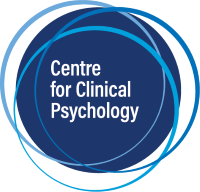FGM/C a taboo subject, one for psychologists to be aware of. If you are a psychologist working with migrant and refugee populations FGM can be an issue.
What is FGM
FGM also called (FGM/C) the acronym stands for female genital mutilation/cutting (FGM/C) is a procedure that harms or alters the external female genitals for non-medical reasons. It is usually performed during childhood and often under unsanitary conditions
Why is it bad
The World Health Organisation states that “FGM has no health benefits, and it harms girls and women in many ways. It involves removing and damaging healthy and normal female genital tissue, and it interferes with the natural functions of girls’ and women’s bodies. Although all forms of FGM are associated with increased risk of health complications, the risk is greater with more severe forms of FGM.”
Immediate complications of FGM can include:
- severe pain
- excessive bleeding (haemorrhage)
- genital tissue swelling
- fever
- infections e.g., tetanus
- urinary problems
- wound healing problems
- injury to surrounding genital tissue
- shock
- death.
Long-term complications can include:
- urinary problems (painful urination, urinary tract infections);
- vaginal problems (discharge, itching, bacterial vaginosis and other infections);
- menstrual problems (painful menstruations, difficulty in passing menstrual blood, etc.);
- scar tissue and keloid;
- sexual problems (pain during intercourse, decreased satisfaction, etc.);
- increased risk of childbirth complications (difficult delivery, excessive bleeding, caesarean section, need to resuscitate the baby, etc.) and newborn deaths;
- need for later surgeries: for example, the sealing or narrowing of the vaginal opening (type 3) may lead to the practice of cutting open the sealed vagina later to allow for sexual intercourse and childbirth (deinfibulation). Sometimes genital tissue is stitched again several times, including after childbirth, hence the woman goes through repeated opening and closing procedures, further increasing both immediate and long-term risks; and
- psychological problems (depression, anxiety, post-traumatic stress disorder, low self-esteem, etc.).
The mental health effects – PTSD
In a 2022 study Wulfes and colleagues examined the cognitive–emotional aspects of post-traumatic stress disorder in the context of female genital mutilation. They found that a total of 55.4% (n = 66) of the women in their study reported symptom levels of probable PTSD.
They also reported that predictors for higher PTSD symptomology were an older age at the time of the FGM/C procedure, feelings of guilt and the centrality of the event in the woman’s life. They conclude that cognitive–emotional processing played an important role in the emergence of PTSD in women suffering from FGM/C. They noted that, interventions taking into consideration these characteristics are mostly lacking and need to be investigated further in the context of FGM/C.
Cognitive Processing Therapy is a therapy for PTSD that focuses on cognitive–emotional processing and has been found to be particularly effective in regard to guilt. Something for clinicians to consider.
References
Resick, P. A., Nishith, P.,Weaver, T. L., Astin,M. C., & Feuer, C. A. (2002). A comparison of cognitive-processing therapy with prolonged exposure and a waiting condition for the treatment of chronic posttraumatic stress disorder in female rape victims. Journal of Consulting and Clinical Psychology, 70, 867–879. https://doi.org/10.1037//0022-006X.70.4.867
World Health Organisation Female genital mutilation, 31 January 2023
https://www.who.int/news-room/fact-sheets/detail/female-genital-mutilation
Wulfes, N., von Fritschen, U., Strunz, C., Kröhl, N., Scherer, R., & Kröger, C. (2022). Cognitive-Emotional Aspects of Post-Traumatic Stress Disorder in the Context of Female Genital Mutilation. International journal of environmental research and public health, 19(9), 4993. https://doi.org/10.3390/ijerph19094993



